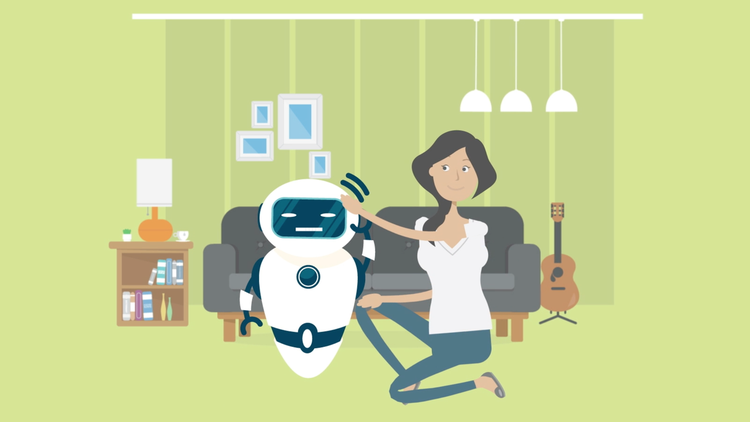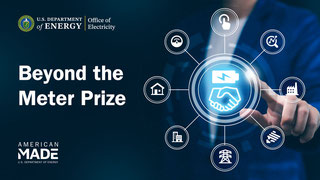Overview
The EthicsNet Guardians' Challenge aims to enable kinder machines.
The Challenge seeks ideas on how to create the best possible set of examples of prosocial behaviour for AI to learn from (i.e. a machine learning dataset).
We welcome entrepreneurs, researchers, scientists, students, and anyone eager to contribute, to jump into this challenge and to help propose a solution. To register for the challenge, click the “ACCEPT CHALLENGE” button above. The EthicsNet Forum is your space to share thoughts and ideas and spark with others with similar visions.
The Problem
- Our interactions with intelligent machines are becoming ever more intimately entwined. However, if we are to enjoy the benefits of AI, trust is essential. One aspect of trust is consistent behaviour over time. However, that behaviour must also be accepted. Objectionable behaviour must be able to be modified to something more preferable.
- Socialization is the process by which we teach someone how they should behave if they want to interact with us. We demand that certain boundaries are maintained in exchange for accepting someone within our social circle.
- For all of human history, people have taught their children and pets how to behave, and given feedback to family members and peers. We believe that it is only natural that humans should interact with intelligent machines in a similar way. People tend to prefer when they have influence over how autonomous systems behave. Such systems are much easier to trust, accept, and work with.
- As human societies have evolved, they have developed rules and taboos to help manage social interactions. If machines are to be socialised, they must learn these behavioural codes, in order to respond appropriately to certain situations.
The Data-driven Approach
- The term Machine Ethics describes a variety of techniques designed to help machines such as computers and robots to make decisions that are more in line with the cultural and moral expectations of society. Machine ethics is sometimes referred to as machine morality, computational ethics or computational morality.
- Machine Ethics is sometimes compared to terms such as AI Alignment. However, Machine Ethics (Computational Ethics) is somewhat more broad than AI Alignment per se, as this space has many important interactions with human ethics and culture also. Machine Ethics may in fact be described as an ‘industrialisation of values and morality’. Such processes are, however, naturally interwoven with the task of teaching intelligent machines how they ought to interact with other agents.
- EthicsNet believes that Machine Ethics has the potential to become as significant to global society as the World Wide Web has been. Machines that understand human values can enable a profound shift in social welfare, economics, and mass psychology in the coming decade.
- This is an exciting new space, but one that currently has few or no deployable engineering solutions. We believe that the key missing component is having the right data to train Machine Ethics technologies upon. We observe that datasets (sets of virtual experiences for machine intelligence) are generally that which has made the most significant contribution to the deployment of machine intelligence technologies in recent years, and we expect this trend to continue.
Our Vision
-
EthicsNet has been established to help accelerate the development of machine ethics technologies, primarily through encouraging the crowdsourced co-creation of a public dataset, or set of datasets, to empower machine ethics systems.
-
EthicsNet is modelled after ImageNet, a dataset for machine vision which has been instrumental not only in providing actionable data for new machine vision algorithms to use, but also in providing a rallying-point and benchmarking tool for rapid development within this space.
-
At present, although there are many organisations focussed on AI Alignment or AI Bias, there appear to be no professional organisations devoted to Machine Ethics (or Computational Ethics) per se, and no official or professional qualifications in this space either.
There are many organisations that advocate for attention to be given to risks from AI, or that advocate for more international collaboration, or that attempt to forge general principles of how technology should be applied.
-
However well-intentioned, discussion and principles alone cannot actually effect a leap forward in the state of the art. To advance the start of the art absolutely requires dataset(s) through which to inform machines via moral examples. Without a dataset, all discussion of this space remains purely academic.
Designing A Dataset
- We want to gather basic ethical intuitions in a fast and simple way. The more fast and simple we can make things, the more inclusive we can make the process of gathering this information, along with the speed of doing so.
- We are trying to provide sufficient good-enough examples of pro-social behaviour to teach machines to behave in a manner comparable to that of a well-raised young human child or friendly dog.
- How can we best create a collection of data that can meaningfully teach machines and that we can use to benchmark the progress of relative algorithms in interpreting that data?
- The dataset should focus primarily on pro-social behaviours, with less focus on anti-social behaviours, though incorporating both into the dataset is important.
The Breakthrough We Are Asking For
-
There are multiple potential ways that we could proceed in the process of making a dataset of prosocial behaviours, and many of those could lead to a dead-end. Before we commit further resources on developing a dataset, we decided to pause, to ask the global community for advice.
Thus, the EthicsNet Guardians' Challenge was born.
- By harnessing the power of the crowd, we hope to find the right idea, or combination of ideas, that will enable us to help create an ideal dataset for machine ethics.
-
We talk of ‘Parents and Guardians’ in respect to socializing children.
At EthicsNet, we believe that humans have a similar responsibility to act as Guardians for Artificial Intelligence – To protect, to nurture, and to safeguard.
The EthicsNet Guardians’ Challenge invites contributors to share ideas on how to create the best possible set of examples through which to teach intelligent machines how to behave nicely.
You may be the one who unlocks a crucial technique in our journey towards the ‘raise of the machines’.
What You Can Do To Cause A Breakthrough
- Click ACCEPT CHALLENGE above to sign up for the challenge.
- Read the Challenge Guidelines to learn about the requirements and rules.
- Share this challenge on social media using the icons above. Please show your friends, your family, or anyone you know who has a passion for building a better society through AI.
- Join the conversations in our Forum, ask questions, and connect with other innovators.
Challenge Breakthrough
All machine learning systems require a dataset (a set of experiences) to learn from. At present, there is no clear dataset for teaching machines how they ought to behave.
EthicsNet seeks to change this, and we need your help and advice.
Background
We understand that in some ways this challenge is as much about 'raising a child' as it is about improving the state of the art within data science and machine learning. No matter your background, YOU may have the key idea that unlocks this capability for the whole world.
Any and all IP received will be open-sourced for humanity using a Creative Commons (CC BY), or 'BSD 3-Clause' license.
Prizes
The Challenge offers up to $10,000 USD in prizes to innovative solutions for innovative machine ethics dataset ideas. EthicsNet will award up to 5 prizes in total for the best ideas. The prize pot may increase further if sponsors can be found.
Timeline
- Challenge Length: 8 weeks
- Judging Length: 1 weeks
- 1 week for Preliminary Screening, for the Judging Panel to evaluate submissions, for Judging Panel Winner Selection Call and basic Due Diligence.
How Do I Win?
To be eligible for an award, your proposal must, at minimum:
- Satisfy the Judging Scorecard requirements
- Thoughtfully address the Submission Form questions
- Be scored higher than your competitors!
Judging Criteria
| Judging Criteria |
Description |
Points |
| Innovativeness of Approach |
How does the proposed solution differ from existing solutions addressing this problem? How is the solution innovative or novel? |
20 |
|
Quality of Solution
|
Is the solution substantiated, well-reasoned, and realistic? Are the assumptions justified and backed by thorough discussion, design, and conclusions? Points awarded for the team’s ability to present its solution in a complete, cohesive, and convincing manner. |
20 |
| Viability |
How capable of working successfully is the proposed solution? Is the robustness of the solution's proposal supported by proof or demonstration of concept, or similar concepts, and are the costs likely to be manageable by a small non-profit? |
30 |
| Culturally appropriate and inclusive |
Does the solution consider the needs of multiple cultures and stakeholders? |
10 |
| Implementation |
When transitioning from theory to implementation, how practical is the viability of implementation, relative to the scale of the solution? Does the entrant state the resources, timing, and any private or public partnerships needed? |
20 |
| |
TOTAL |
100 |
Additional Rules
Awarding Prizes
The highest scoring teams will be awarded a prize based on a formal judging process using the judging criteria stated in the Challenge Guidelines. The determination of the winners will be made by a group of people including experts in AI, philosophy, Machine Ethics, and Cognitive Science.
Participation Eligibility
The EthicsNet Guardians' Challenge encourages participation from all individuals, private teams, public teams, and collegiate teams. Teams may originate from any country. Submissions must be made in English. All challenge-related communication will be in English.
No specific qualification or expertise is required. Challenge organizers encourage outside individuals and non-expert teams to compete and propose new solutions. To be eligible to compete, you must comply with all the terms of the challenge as defined in the Challenge-Specific Agreement, which will be made available upon registration.
Registration and Submissions
Submissions must be made online (only), via upload to the HeroX.com website, on or before the stated deadlines. Late submissions are unlikely to be accepted.
Selection of Winners
Based on the winning criteria, prizes will be awarded per the Judging Criteria section above. In the case of a tie, the winner(s) will be selected based on the highest votes from the Judges.
Consolation Prize
In the case of no winner, the Challenge Sponsor reserves the right to withhold the Prize Purse amount. In place of the original prize amount, the Challenge Sponsor must issue a Consolation Prize to the team or individual closest to the winning solution in the amount of at least 10% of the total original prize purse.
Intellectual Property
The Sponsor will require all content and assets submitted as part of a Finalist’s Submission to be released under open source licenses that permit free distribution, derivative works, and use in commercial and non-commercial settings.
All Innovators are welcome and encouraged to depend on or make use of other components, libraries, content, assets, and code. All such materials must be available under any Open Source Initiative (OSI) or Creative Commons license compatible with the OSI or Creative Commons license under which the Submission will be released. “Compatible” means that each Innovator’s entire Submission must be usable without violating the license terms of those components licensed under the CC BY 4.0 license, Apache License 2.0, or respective OSI license for the components. Source code licensed under the LGPL, BSD, MIT, or Apache licenses currently meets this criterion; other open source licenses may also meet it. If Innovators make modifications to existing open source projects, they are strongly encouraged to submit patches upstream and work to have them accepted. Patches that are not accepted upstream may be submitted as part of the code developed by the Innovator, under the same Apache License 2.0. Content and assets must be licensed under terms that permit commercial usage. The Creative Commons CC BY and CC-BY-SA licenses currently meet this criterion. Innovators cannot submit entries that include or rely on software or content that is either closed-source, proprietary, illegally sourced, or depends on per-seat licensing.
Additional Information
- By participating in the challenge, each competitor agrees to submit only their original idea. Any indication of "copying" amongst competitors is grounds for disqualification.
- All applications will go through a process of due diligence; any application found to be misrepresentative, plagiarized, or sharing an idea that is not their own will be automatically disqualified.
- All ineligible applicants will be automatically removed from the competition with no recourse or reimbursement.
- No purchase or payment of any kind is necessary to enter or win the competition.
- Void wherever restricted or prohibited by law.








